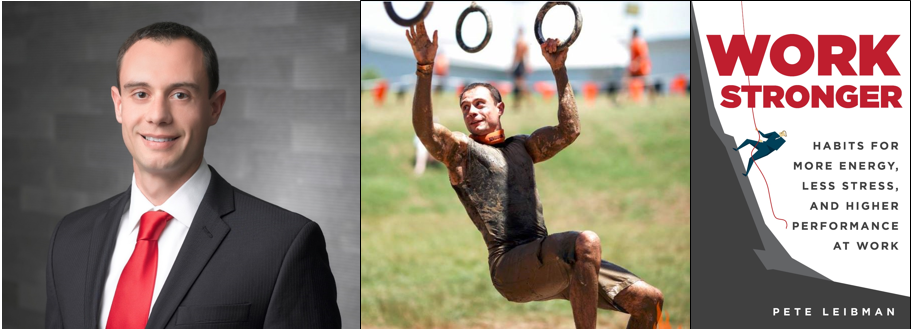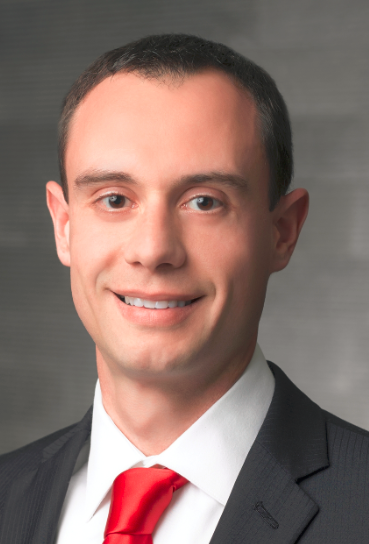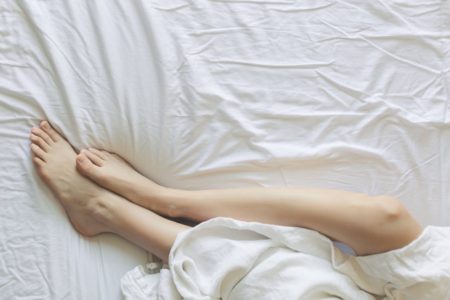Do you ever struggle to fall asleep quickly?
Do you ever wake up the middle of the night and have difficulty getting back to sleep?
Do you ever wake up in the morning feeling exhausted, even after getting at least 7-8 hours of sleep?
If you have trouble sleeping, you are definitely not alone. According to some estimates, over 50 million Americans suffer from occasional or chronic sleeping problems.1
The good news is that many sleeping problems are preventable. If you have any symptoms of insomnia, chances are that your habits (not your genetics) are actually the problem.
That has definitely been the case for me. Earlier in my life, I struggled with my sleep virtually every night. However, it turns out that my sleeping problems were completely self-induced. By forming stronger sleeping habits, I sleep well almost every night these days.
In this article, you’ll learn five habits that can actually cause insomnia. Break these habits, and you will fall asleep faster, sleep more soundly, and wake up feeling more refreshed every day.
Habit #1: Using electronic devices right before bed.
According to National Sleep Foundation, 95 percent of us use some kind of electronic device within an hour of bedtime on at least a few nights each week.2 Studies have demonstrated that this significantly reduces sleep quality.
For example, in a 2014 experiment led by Dr. Anne-Marie Chang of Penn State University, researchers found that people who read on an iPad before bedtime took longer to fall asleep, and their sleep quality was lower than those who read physical books in a dimly lit room. Those who read on an iPad before bed also reported being groggier and less alert the next morning, even after getting eight hours of sleep.3
One of the simplest and most powerful ways to improve your sleep quality is to shut down all electronics (television, laptop, iPad, cell phone, and so on) and avoid social media and emails for at least 30 minutes before you get into bed. Even better, don’t keep or allow any electronics to enter your bedroom at any time.
If you think you need the sound from a TV to fall asleep, you can turn on a fan or a white noise machine instead for a more peaceful, light-free source of ambient noise. Having said that, if you do watch TV late at night, your best bet is to stick to shows that are peaceful (i.e. nature shows), rather than stimulating or potentially upsetting (i.e. the nightly news).
Habit #2: Drinking caffeine later in the day.
Do you ever drink coffee or energy drinks in the afternoon or evening? These beverages can give you a brief energy boost, but they can also compromise your sleep quality and make you even more tired and sluggish the next day. You can easily fall into a cycle where you feel like you need caffeine to make it through the day- which is great for Starbucks and 5-Hour Energy, and not so great for you and your health.
In one study led by Dr. Christopher L. Drake of Wayne State University, researchers found that caffeine consumed within six hours of bedtime led to significant disruptions in sleep quality and quantity, even among those who did not believe they were impacted.4
If you choose to consume caffeine, the best option is to stick to one or two cups of coffee before lunch. If you want an energy boost later in the day, try going for a walk instead. In an experiment conducted at the University of Georgia, researchers found that ten minutes of low-intensity activity (like walking) could make participants feel more energized than consuming 50 mg of caffeine, the amount found in a typical can of soda.5
Habit #3: Having an inconsistent bedtime.
If your bedtime is inconsistent, and you stay up much later on certain nights each week, you can suffer from “social jet lag.”6 This is a term coined by Till Roenneberg, PhD, a professor at the Institute of Medical Psychology at the University of Munich. Unlike travel jet lag, in which your body can reset and adjust to a new time-zone, social jet lag can cause chronic problems- since you are staying in the same location.
This habit is rampant among those who stay up late socializing during weekends. Stay up way much later on Fridays or Saturdays, and you should not be surprised if you have trouble sleeping during the rest of the week. It’s like being in a different time-zone every weekend.
Rather than socializing very late on weekends, what about starting and ending the night earlier?
Habit #4: Drinking alcohol before bed.
Do you ever drink a glass of wine or another alcoholic beverage as a sleeping aid before bed? Alcohol can help you fall asleep faster, so it can mislead you into believing that it’s helping you sleep. Unfortunately, it also reduces the quality of your sleep, it can lead to snoring and poorer breathing, and it makes you more likely to wake up in the middle of the night.7 If you choose to drink alcohol, try to limit it to one drink a day and try not to drink right before bed.
Habit #5: Eating processed foods or heavy meals before bed.
Do you ever reward yourself at the end of a long day with a dessert or a large meal? Do you ever get the munchies when socializing late at night with friends? If you have trouble sleeping, your eating habits could actually be what’s causing the problem.
In an experiment by Columbia University, researchers found that high sugar intake and low fiber intake (what you usually find in processed foods) was associated with poorer sleep quality.8 While sugary products and artificial foods are clearly not good for you at any time of the day, eating them right before bed is probably the worst time to consume them.
The National Sleep Foundation also recommends avoiding large meals within the two to three hours before bed.9 If you choose to eat heavy meals or processed foods, save them for earlier in the day.
Summary
Many sleeping problems are actually self-induced. That was certainly the case for me earlier in my life. At that time, my habits were a recipe for insomnia. By forming stronger sleeping habits, it’s amazing how much better your sleep quality can be, and how much better you can feel and perform as a result. Based on experience (and science), you will fall asleep much faster, sleep much more soundly, and wake up feeling much more refreshed when you:
- Turn off your devices at least 30 minutes before bed.
- Avoid caffeine after lunch.
- Keep your bedtime schedule consistent, including on weekends.
- Avoid or minimize alcohol right before bed.
- Avoid heavy meals and processed foods right before bed.
P.S. Have you taken my free habits assessment at StrongerHabits.com?
I developed an assessment that measures your habits in four key areas linked to greater health, well-being, and performance. You can click here to take the assessment for free. It takes less than 3 minutes, and you get your results immediately.
About the author: Pete Leibman is the creator of StrongerHabits.com, the founder of Work Stronger Consulting, and the bestselling author of Work Stronger; Habits for More Energy, Less Stress, and Higher Performance at Work. His work has been featured on Fox News, CBS Radio, and CNNMoney.com.

References for this article:
- “Sleep Disorders,” Remedy’s HealthCommunities.com, accessed on April 17, 2018, http://www.healthcommunities.com/sleep-disorders/overview-of-sleep-disorders.shtml.
- “How Technology is Changing the Way We Sleep,” National Sleep Foundation, accessed on August 15, 2017, https://sleep.org/articles/how-technology-changing-the-way-we-sleep/.
- “PNAS study: using iPad before bed has major impact on sleep,” f.lux, accessed on August 22, 2017, https://justgetflux.com/news/2014/12/22/study.html; Anne-Marie Chang et al., “Evening use of light-emitting eReaders negatively affects sleep, circadian timing, and next-morning alertness,” Proceedings of the National Academy of Sciences 112, no. 4 (January 2015): 1232-1237, http://www.pnas.org/content/112/4/1232.full.pdf.
- Michael J. Breus, “New Details on Caffeine’s Sleep-Disrupting Effects,” Psychology Today, December 16, 2013, https://www.psychologytoday.com/blog/sleep-newzzz/201312/new-details-caffeine-s-sleep-disrupting-effects; Christopher Drake et al., “Caffeine effects on sleep taken 0, 3, or 6 hours before going to bed,” Journal of Clinical Sleep Medicine 9, no. 11 (November 2013): 1195-1200.
- Kristin Morales, “Skip the caffeine, opt for the stairs to feel more energized,” University of Georgia, April 19, 2017, http://news.uga.edu/releases/article/stairs-more-energy-research/.
- Brenda Goodman, “Do You Have ‘Social Jet Lag?”, WebMD, May 10, 2012, https://www.webmd.com/sleep-disorders/news/20120510/do-you-have-social-jet-lag#1.
- “Reviewing Alcohol’s Effect on Normal Sleep,” ScienceDaily, January 22, 2013, https://www.sciencedaily.com/releases/2013/01/130122162236.htm.
- Lynn Celmer, “Study suggests that what you eat can influence how you sleep,” American Academy of Sleep Medicine, January 14, 2016, http://www.aasmnet.org/articles.aspx?id=6072.
- “Healthy Sleep Tips,” National Sleep Foundation, accessed on August 14, 2017, https://sleepfoundation.org/sleep-tools-tips/healthy-sleep-tips/page/0/1.


